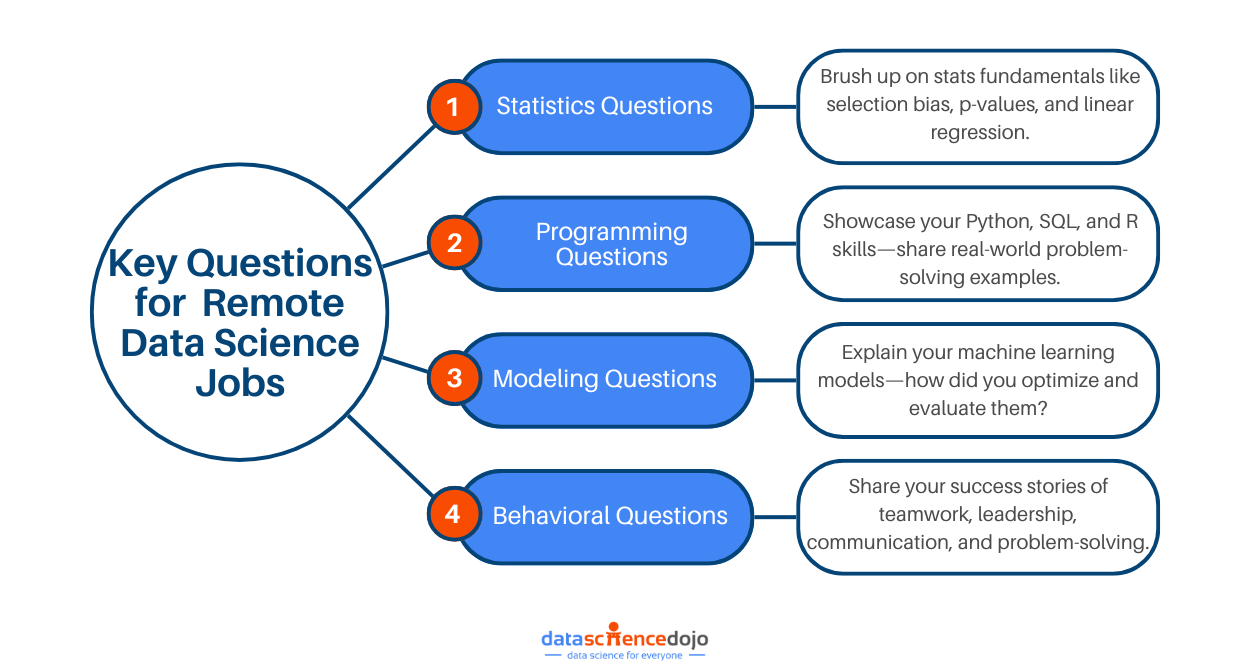Feedspot
1M
74

Image Credit: Feedspot
Remote Data Science Jobs: 5 High-Demand Roles for Career Growth
- COVID-19 has pushed remote work from a perk to a necessity, opening up a global market for remote opportunities.
- Data science roles are projected to grow 36% from 2023 to 2033, with nearly half of employers now supporting full-time remote work.
- Remote data scientists must operate with high levels of autonomy. Unlike in-person roles with on-the-spot guidance, they are expected to independently manage complex projects.
- Collaboration in remote data science jobs relies heavily on digital tools. Companies cloud-based platforms and project management tools to keep workflows smooth and organized.
- Top universities and industry leaders highlight the following roles as high-growth areas in data science: Research Data Scientists, Applied ML Scientists, Data Compliance Specialists, Database Analysts, and Machine Learning Engineers.
- Soft skills such as effective communication, critical thinking, and adaptability enable data scientists to convey complex insights, collaborate with diverse teams, and work autonomously in a remote setting.
- To land a remote data science job, join virtual competitions and open-source projects, pursue specialized certifications from leading institutions, participate in online communities, consider freelance work or remote internships, and focus on building a strong portfolio.
- Data Science Bootcamp by Data Science Dojo, IBM Data Science Professional Certificate, Microsoft Learn, Harvard’s Data Science Professional Certificate, and Google Data Analytics Professional Certificate are some excellent programs to prepare for remote data science jobs.
- Remote data science roles offer significant opportunities for skilled professionals. By focusing on key skills and building a strong, relevant portfolio, you’ll be well-prepared to succeed remotely.
- Soft skills such as effective communication, critical thinking, and adaptability enable data scientists to convey complex insights, collaborate with diverse teams, and work autonomously in a remote setting.
Read Full Article
4 Likes
For uninterrupted reading, download the app